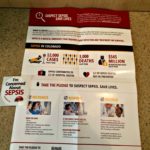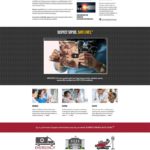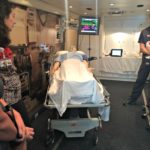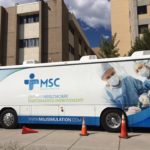Case Study
Client: Medical Simulation Corporation
The Challenge
One of MSC’s most cutting-edge educational simulations trains clinicians to quickly detect, diagnose and treat sepsis–a life-threatening condition that arises when the body’s response to infection injures its own tissues and organs. Even though sepsis is a leading cause of death in the US, public awareness about the condition is relatively low. Many who have heard of sepsis don’t understand the symptoms, causes or severity. Even many first responders and healthcare providers have limited understanding about the condition, its urgency or its prevalence.
MSC hired Pushkin PR to create a public awareness campaign to educate the public, healthcare providers and hospital administrators about sepsis and how MSC’s medical simulation training can save lives by helping hospital teams improve their sepsis recognition and response.
The Solution
As a first step, we conducted stakeholder interviews with MSC employees, healthcare providers, hospital administrators and sepsis survivors to gauge sepsis awareness. We developed a new brand for the campaign and a communications strategy to reach the public and healthcare workers.
Communications Problem? We can help
- A brand messaging session with MSC resulted in the messaging platform we used to drive the campaign.
- Through our interviews and research, we identified three main groups to target: female caregivers, seniors and healthcare providers.
- We worked with MSC to design and create content for a website (www.suspectsepsis.org) that provides information about the symptoms and treatments of sepsis and asks visitors to take a pledge to “Suspect Sepsis.”
- We set up Facebook and Twitter accounts to proliferate the message and raise public awareness.
- We held a kickoff event at University Hospital of Colorado where we shared information and heard sepsis experts and survivors speak about the condition and the need to raise awareness.
- We invited media to attend and coordinated interviews with MSC leadership and sepsis survivors.
- We helped organize a “bus tour” at hospitals throughout Colorado featuring the MSC Suspect Sepsis mobile simulation lab that features a life-like mannequin used to train hospital teams.
The Results
The campaign generated positive print and TV media placements that included our key messages and photos of the Suspect Sepsis bus. Media coverage included the Denver Post, Fox 31 and CBS4 in Denver, the Fort Collins Coloradan, Fox 21 in Colorado Springs, the Durango Herald, the Summit Daily, Health News Colorado and a front- page story in the Wheat Ridge Transcript.
Within one week of the campaign launch, more than 500 people took the online pledge to Suspect Sepsis. Through public relations, media outreach and hospital events, we helped MSC raise public awareness, not only about sepsis, but also about the company’s simulation training.






